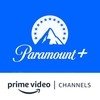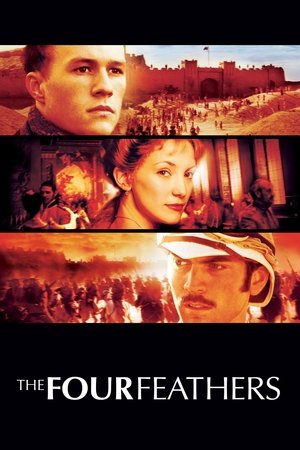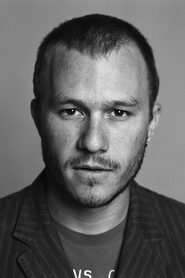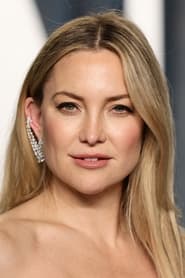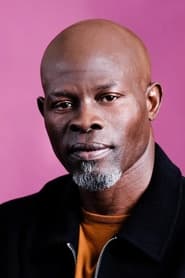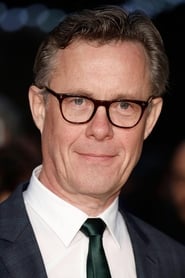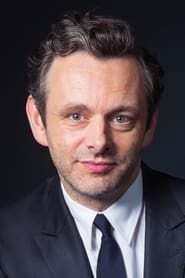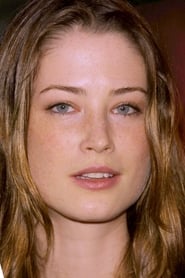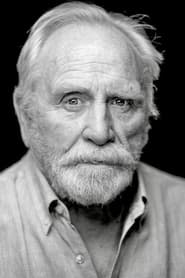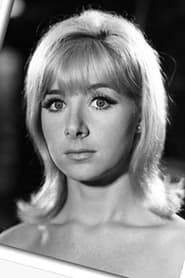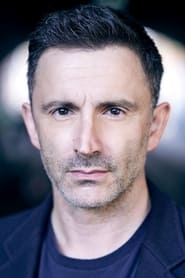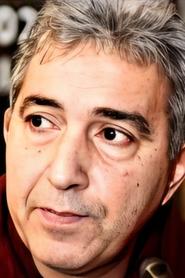Cast
View AllHeath Ledger
as Harry Faversham
Wes Bentley
as Jack Durrance
Kate Hudson
as Ethne Eustace
Djimon Hounsou
as Abou Fatma
Alex Jennings
as Colonel Hamilton
Michael Sheen
as William Trench
Lucy Gordon
as Isabelle
James Cosmo
as Col. Sutch
Angela Douglas
as Aunt Mary
Daniel Caltagirone
as Gustave
Mohamed Bouich
as Sudanese Storyteller
Campbell Brown
as Dervish Ansar
Andy Coumbe
as Colonel Other Regiment
Karim Doukkali
as Egyptian Orderly
Megan Hall
as Millie
Crew
Director
- Shekhar Kapur
Producer
- Paul Feldsher
- Robert Jaffe
- Stanley R. Jaffe
- Marty Katz
Reviews
Wuchak
***Brits fighting Sudanese rebels in 1884 with Heath Ledger, Wes Bentley and Kate Hudson***
Based on the novel by A.E.W. Mason, a greenhorn British regiment in 1884 is commissioned to Egyptian-ruled Sudan to fight Mahdi rebels. A young officer, Harry (Heath Ledger), unexpectedly resigns and is shamed as a coward by his three best friends (e.g. Wes Bentley) and fiancée (Kate Hudson). After the negative fallout he goes to Sudan undercover to hopefully redeem his honor.
"The Four Feathers" (2002) is similar to Victorian-Brits-fighting-in-Africa flicks like “Zulu” (1964) and “Khartoum” (1966), but I prefer this one as it’s just more compelling and is a quality modern production (I’ve never seen the old-fashioned 1939 version).
There are a lot of gems to mine here, like Harry’s individualism in the face of great social pressure to conform. His reasoning is simple: He never wanted to be a soldier and only took the commission to please his gung-ho militarist father. Besides, how is what’s happening in the Sudanese desert relevant to him and the British in the first place? Why should he risk dying or losing a limb for this dubious purpose? One of the best parts is Harry’s growing friendship with Sudanian Abou Fatma (Djimon Hounsou).
Unfortunately, the movie’s hampered by two problems: The mechanics of the plot sometimes drive the characters and it doesn’t feel natural or real. For instance, when Harry easily joins the Mahdi rebels and is later seen riding toward the British regiment it’s serious “Yeah, right” territory. Another problem is that, from the main battle forward the movie doesn’t allow itself to breath and seems like it’s in a rush, like it doesn’t have the confidence to slow down and tell the story because it’s worried about fitting into a 2-hour timeframe and pleasing those with ADHD.
If you can get past those two hitches, this is a worthy historical adventure flick.
The film runs 2 hours, 12 minutes and was shot in England and Morocco.
GRADE: C+/B-
May 21, 2019
Filipe Manuel Neto
**An elegant, visually beautiful, historically well-made film, but very clean of all the controversies it could address.**
The novel “The Four Feathers” has been adapted for film several times, since the days of silent films. Before seeing this film, I had seen a 1939 version, and the similarities of both films are almost as striking as their differences. Which one will be the closest to the original novel? I don't know, I haven't read the novel, but I'd bet more on the older version.
I don't know if it's really worth talking about the script: Harry Faversham, a young British son of a general, is impelled by his father to follow the family tradition and becomes an officer. However, days before his regiment leaves for war, in Sudan, to face the Mahdist Revolt, he asks to leave the army, thus acquiring the label of coward, marked by the offer of the famous white feathers. Faced with this, he radically changes his mind, and decides to go, at his own risk, to Sudan, alone, with the idea of returning their feathers.
Well, what was good about the older films was their ability to make this story seem more plausible, explaining the character's initial motivations for not going and, then, making an intelligent bet on issues of honor, reputation, pride. Without this, the protagonist's change of mind does not make sense: he was not capable of going to fight in a distant war, but he feels capable of going there, alone, and only because he was called a coward? Put that way, it's absurd. This film adaptation has handled this shift in thinking poorly, doesn't explain it properly, and makes it all seem frivolous. The romantic relationship between Faversham and Ethne also never really feels solid. The ending is completely changed and turns out to be more acceptable than the heroic and patriotic ending of the 1939 film.
Heath Ledger is a good actor and is in good shape in this film, which will certainly be one of the most interesting of his (unfortunately) short career. I also really enjoyed the work of Wes Bentley and Djimon Hounsou. But the merits of the cast end here. Kate Hudson never puts in the effort, she just seems happy in the pretty dresses she wears, and the rest of the cast doesn't get the treatment and development they should have.
Technically, the film is very good. There was, clearly, a great effort in terms of historical accuracy, mainly with regard to military uniforms, equipment and tactics, in a period in which there is a lot of reliable published information - it was the Victorian era, the era of the great expansion of the British Empire, and the colonization of Africa. There is, however, a certain care not to touch “wasp nests” such as the enormous ethnocentrism that the British cultivated at the time, racism, the apology of the empire and the “civilizing mission” that the Europeans had to carry out in “savage” Africa. The film takes place in this period, but avoids touching these points in a forceful way as much as possible. Perhaps the producers were a little afraid of seeing DVDs of the film stuck in the next statue of a white colonist that a fanatical group of students decided to tear down in England. The film also took special care in recreating the sets and environments, and in the cinematography, resulting in an aesthetically beautiful and elegant work. The soundtrack, I confess, did not convince me.
Dec 31, 2022
CinemaSerf
The loved-up "Harry' (Heath Legder) does the unthinkable and resigns his military commission just as his regiment is about to go into action in North Africa. He thinks of his motives as thoroughly honourable - staying to be with new affianced "Ethne" (Kate Hudson). Sadly for him, though, just about everyone else thinks he has gone a bit yellow and deliver him the ultimate symbol of cowardice - a single white feather attached to their card. It's only his friend "Jack" (Wes Bentley) who has some sympathy but when the soldiers leave, "Jack" is completely ostracised - even by his love. He isn't a coward though, and determines to follow his colleagues, incognito, and as the story develops they can all be glad that he did. I really enjoyed the 1939 version of this, and to be fair this isn't an half bad remake. It's a bit long and flighty at times, and the supporting cast of largely British actors doesn't really add much to the sense of menace the soldiers face on their desert battlefield with the fearsome Dervishes bearing down on them relentlessly. The combat scenes are quite well put together and there are plenty of them as his tortuous challenge reaches it's conclusion. It's really just a camera-friendly vehicle for a charismatic star who looked like he was enjoying himself amidst the stiff-upper-lip Victorian military environment where pride quite literally went before a fall. If you enjoy a solid, boy's-own style of adventure movie then this entertains easily enough for a couple of hours of colourful derring-do.
Jun 6, 2024
Thematic Analysis
The Four Feathers represents a fascinating example of cinema, offering viewers a unique perspective on the human experience and societal structures. The film's approach to its themes demonstrates a creative vision that distinguishes it within its genre.
Director Shekhar Kapur brings their distinctive visual style to this film, continuing their exploration of themes seen in their previous works while adding new elements. Their approach to pacing and visual storytelling creates a viewing experience that rewards close attention.
Released in 2002, the film exists within a cultural context that continues to evolve with our understanding of its themes. Its reception demonstrates the diverse reactions to its artistic choices and its place in cinema history.
Did You Know?
- The production of The Four Feathers took approximately 27 months from pre-production to final cut.
- The film contains approximately 1469 individual shots.
- The screenplay went through 8 major revisions before the final shooting script was approved.
- Some visual effects sequences took up to 6 months to complete.
Historical Context
- In 2002, when this film is released:
- Digital technology was disrupting traditional media and entertainment.
- Social media platforms were beginning to transform communication.
- Digital filmmaking technologies were transforming production processes and creating new opportunities.
How This Film Stands Out
While The Four Feathers shares thematic elements with other films in its genre, it distinguishes itself through its unique approach to storytelling, visual style, and character development.
Unlike Corbin Nash, which takes a more conventional approach to its subject matter, The Four Feathers subverts genre expectations by exploring its themes with greater nuance.
While films like The Man Who Knew Too Little and Soldier explore similar territory, The Four Feathers stands apart through its deeper exploration of its central themes and more complex characterization.
This film's unique contribution to cinema lies in its bold artistic choices and willingness to challenge viewer expectations, making it a valuable addition to its genre.
Details
- Release Date: September 8, 2002
Where to Watch


